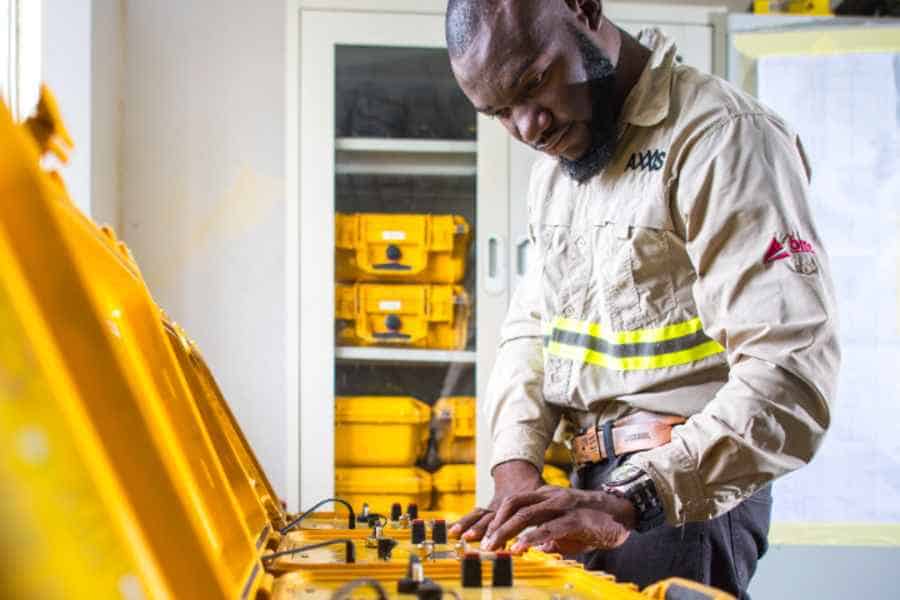The most advanced electronic blast initiation system in the world is undergoing final trials in South Africa, with a 100% success rate to date.
The AXXIS TITANIUM system, the latest generation of BME’s tried and tested AXXIS blasting systems, is expected to be launched later this year as a successor to the company’s second-generation version. According to Tinus Brits, BME’s global product manager for AXXIS, the latest product is certified for trials in terms of the South Africa’s Authorised Recommended Process (ARP) 1717 standard and is being field tested with the permission of the Department of Mineral Resources.
“The upgraded system has achieved trial certification from the first phase of testing, receiving a six months trial period confirming that it is safe to use,” said Brits. “Trials are now proceeding under the control of BME, so that we can build up a history of performance data – which to date has been faultless.”
He said that the trials have so far been conducted on seven relatively small sites around the country since February 2020, using up to about 500 detonators per blast. These trials will continue as and when Covid-19 lockdown conditions allow.
“After about six months of trials are completed, application can be made for final certification from the regulator,” he said. Trials were also likely to be extended to international locations as travel regulations opened up.
Andries Posthumus, product development manager for AXXIS, highlighted AXXIS TITANIUM’s functionality – with a unique three-in-one blasting box that can also be configured as a control box or as a repeater box. A larger number of boxes can be easily linked, as well as many more detonators – to improve efficiencies in blasting and saving time and cost for customers.
“Even with this additional capacity, the system speeds up the logging process, while allowing on-bench logging and testing of up to 500 detonators,” said Posthumus.
The robust blasting box also benefits from even stronger shell technology, which is matched by tougher downhole cables. In terms of digital data transfer and storage, the system’s NFC communication protocols allow faster wireless transfer of files between loggers, with data stored and managed in the cloud.
The latest upgrade promises to provide mines with a significant productivity opportunity, said Brits, while demonstrating BME’s commitment to safety and continuous technological innovation.





